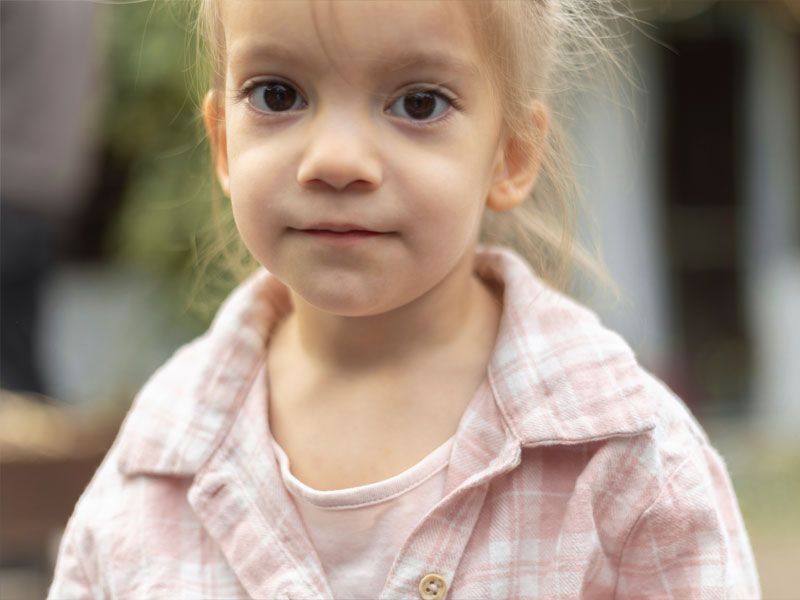
Kelly was a 5-year-old girl when she was referred to KidsAid by her mother, who had become increasingly concerned about changes in her daughter’s behaviour. Kelly had become withdrawn, frequently expressed feelings of sadness, was reluctant to attend school, and was experiencing regular nightmares.
Over the previous year, Kelly had endured multiple significant losses. Two of her grandparents had passed away within months of each other, and more recently, she had witnessed the traumatic death of her dog, who was struck by a car outside the family home.
Following the referral, Kelly was assessed and 20 sessions of play therapy was recommended as a supportive intervention. The aim of therapy was to offer a safe space where Kelly could explore her experiences of loss, express her emotions, and begin to rebuild a sense of safety and emotional resilience.
Kelly attended her first session accompanied by her mother, who waited outside during the appointment. Upon entering the therapy room, Kelly appeared shy. She spoke softly, avoided eye contact, and cautiously explored the space. In the early sessions, the primary focus was on building trust and helping Kelly feel safe with her therapist.
As the therapeutic relationship developed, recurring themes of sadness, fear, and frustration began to emerge through Kelly’s play. She was immediately drawn to the puppets, using them as a medium to express her inner world. Through imaginative play, Kelly constructed scenes that reflected her emotional experiences, allowing her to share her story in a symbolic, non-verbal way.
Over time, deeper themes of loss and abandonment surfaced. Kelly developed a narrative about a girl who had “lost too much” and felt left behind in a world that kept moving on. Through this character and her stories, Kelly was able to revisit painful memories and give voice to her feelings of sadness and fear.
With the support of her therapist, Kelly gradually found the words to talk about her grief. These conversations were handled with age-appropriate language and sensitivity, helping Kelly feel heard, understood, and reassured. Together, she and her therapist worked on developing coping strategies, including creating a memory box filled with items representing her grandparents and her dog — something tangible to honour and remember them by.
A key sign of Kelly’s progress was that her nightmares became infrequent. As she continued to process her grief, she became less anxious about separating from her mother and showed greater readiness to attend school. Through therapy, Kelly developed a stronger sense of emotional security and the tools to navigate her feelings with growing confidence and resilience.